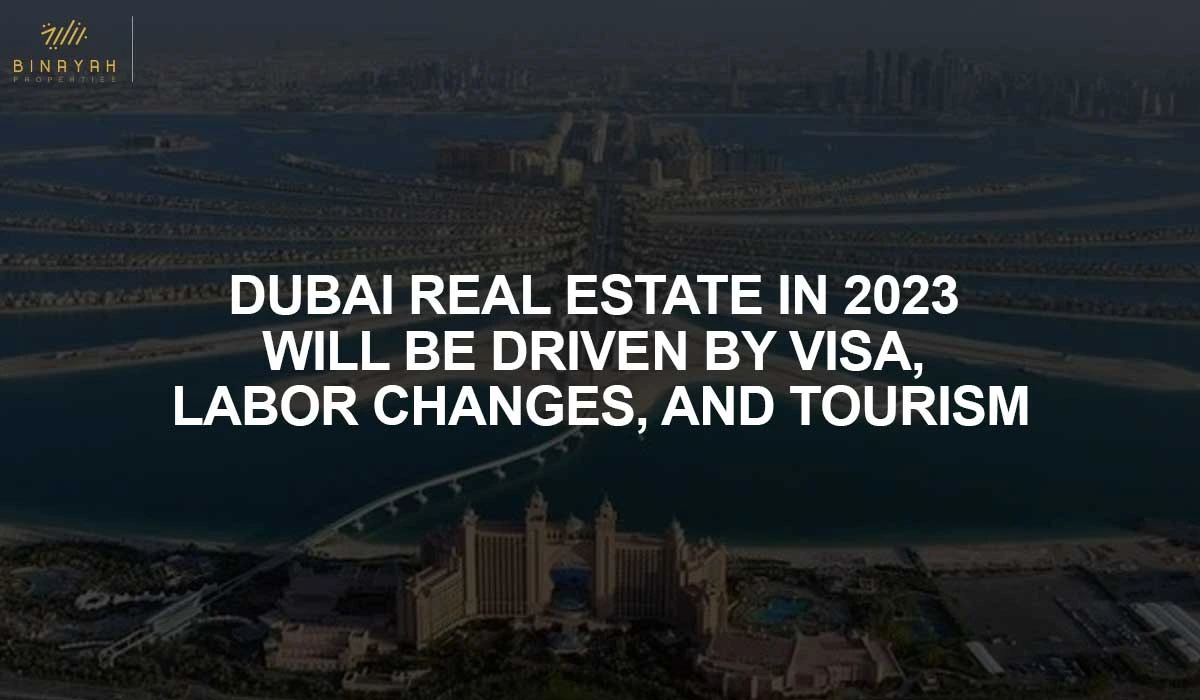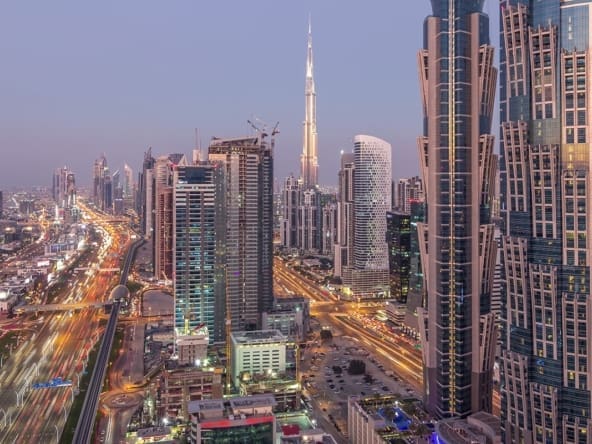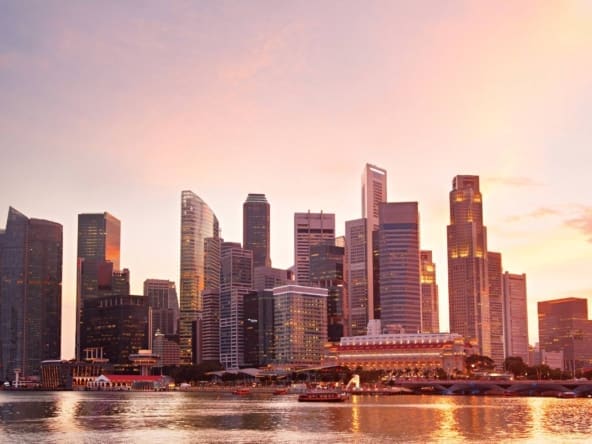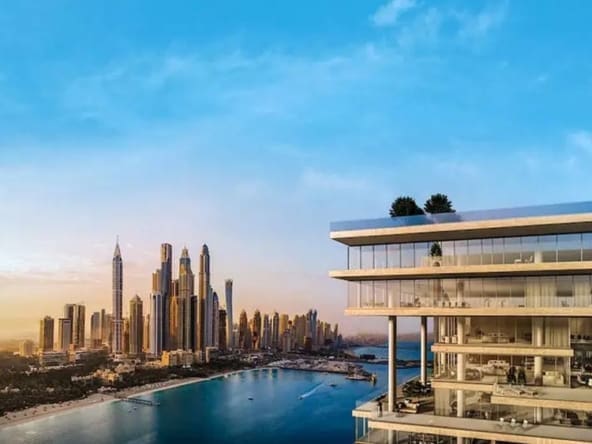Real Estate Experts Anticipate an Increase in Prices Of Up To 10% This Year Due To the Robust Demand In The Luxury Market.
According to analysts, Dubai’s real estate market will continue to expand this year. As end users and investors continue to invest in the residential sector of the emirate. Due to their strong belief in the country’s promising economic future.
Tourism, visa liberalization, and labor reforms, according to analysts, top executives, and industry participants, will continue to spur investment in the UAE’s real estate market.
Due to high demand in the luxury market and the influx of millionaires and high net worth individuals to Dubai. Because of its stable economy, effective response to the Covid-19 pandemic, and development of first-rate infrastructure. Real estate prices are predicted to increase by up to 10% this year.
The most recent analysis, according to Haider Tuaima, director and head of real estate research at ValuStrat, indicates that property values in upscale neighborhoods have increased on average by 7–10%.
“The ValuStrat Price Index showed a 12.7% increase in general house prices from 2021 to 2022. In the same time frame, the VPI for premier homes rose by 14.7% “On Saturday, Tuaima spoke to Khaleej Times.
According to him, the current prediction of 7–10% indicates the expected yearly growth in prices. For both prime and non-prime homes in Dubai’s freehold real estate market.
By the end of 2023, prices are expected to grow by 10–13% annually if we only consider the top area, the analyst said.
Optimistic Predictions For 2023
On Saturday, Deloitte projected that the real estate markets in Dubai and Saudi Arabia will continue to expand this year. In addition, a robust rebound in the tourist industry would help both markets in the region.
The firm offered a bullish prognosis for 2023 in its ninth annual Middle Estate Real Estate Predictions 2023 report, stating that all real estate categories, including hotel, residential, retail, commercial office space, and industrial, will do well this year.
For residential investors, 2022 has been a successful year. Because investors found it difficult to look back at more recent patterns in Dubai, According to Oliver Morgan from Deloitte’s Real Estate division in the Middle East.
“As occupiers look for expansion outside of the Far East and Europe, Riyadh and Dubai remain appealing business markets. A social marketer’s dream, increasing retail and F&B offerings together with investment in infrastructure. That continue to bring record numbers of visitors to both sites, according to Morgan.
Robust Recovery
According to Tuaima, Dubai’s residential market started to rebound immediately following the pandemic in 2020 primarily. Because of demand for more space and a lack of new build villa options. As well as a shift from renting to home ownership and broader economic fundamentals that fueled the demand.
“The next year, this pattern became more pronounced, although increase in capital value halted last year. This trend is likely to slow down even further by 2023, with certain regions having already reached potential price limits. In addition, maybe seeing negative growth in areas where there will be an abundance of supply “said he.
According to Ata Shobeiry, from Zoom Property, the Dubai real estate industry is anticipated to expand further in 2023. With the help of both domestic and overseas investors.
In response to query, he stated that Dubai villa prices in general increased by 20.5% last year compared to 2021. The same could not be said for the majority of flats, as capital values experienced a yearly growth of 6.5%. With many locations seeing no change in pricing for that period.
“Due to the tremendous demand from high-net-worth individuals, the market is already gaining a lot of momentum. In 2023, this pattern is anticipated to persist. These factors, together with government assistance, would contribute to Dubai real estate seeing a respectable increase. Particularly in the second half “Shobeiry said on Saturday to the Khaleej Times.
Demand for Coveted Locations
As per As per Nikita Kuznetsov from Metropolitan Premium Properties, The current and anticipated market conditions are in favour of owners of residential properties in Dubai. Especially in sought-after locations like the coastal areas, including Dubai Marina, Jumeirah Beach Residence, Bluewaters, Beachfront, Palm Jumeirah, and Port de la Mer.
“Buyers also love the Downtown and Business Bay, Dubai Creek, and Jumeirah Village Circle. According to him, DAMAC Hills, Emirates Living, Dubai Hills, Arabian Ranches, and Villanova are the most popular locations for villas.
Owners of residential property in Dubai are in a prime position to maximize their investment given that it is predicted. That the city’s population would increase from its current level of 3.5 million to 5.8 million by the year 2040, he added.
Houses That Are Ready For Habitation
According to a recent sur vey, more than the previous record high of 81,182 real estate sales, or 90,881 transactions, were recorded in Dubai last year. Sales of new construction properties increased by 92.5%, while those of used homes increased by 32.4%.
Leading developers are anticipated to unveil multiple projects this year, and Kuznetsov predicted a 30–40% rise in the number of new initiatives launched.
“There is a significant demand for ready homes, thus the secondary market is also anticipated to maintain its strong upward trend. The amount of Dh100M+ agreements that were closed last year shows that, he added.
In response to a query, he stated that all market sectors are anticipated to expand, but that villas and luxury residences would see particularly strong demand due to their extremely low availability in this specific market category. “There will also be demand from investors and end users for mid-size and lower-budget houses around Dh1 million,” he said.
“Price growth will continue in 2023, but it won’t likely be at the same pace as it was in 2018. The demand for ready-to-move-in apartments and villas will be what drives the price increase because of a combination of factors, including an increase in the number of long-term residents and a surge in interest from foreign HNWIs wanting to invest in second homes, Kuznetsov said.






